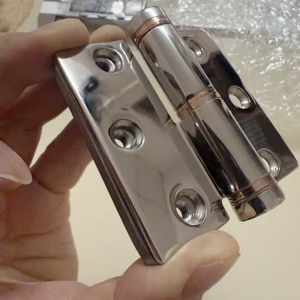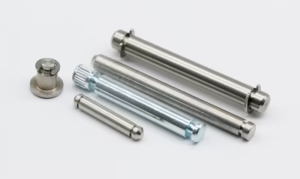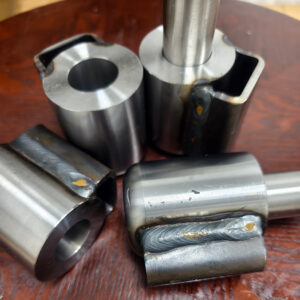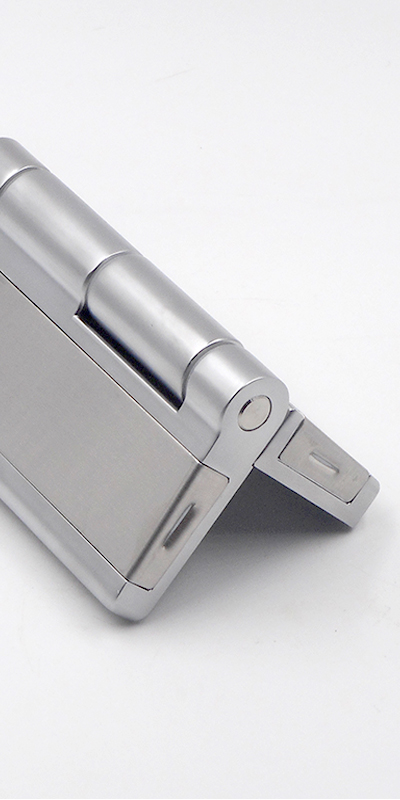Piano hinges offer consistent support across the entire length of industrial doors, reducing sagging and enhancing operational stability.
Doors with piano hinges are more stable and durable because the hinge runs the full height of the door, providing continuous, evenly distributed support. This minimizes stress on individual points, reduces wear, and prevents misalignment over time—making them ideal for heavy-duty industrial applications.
Let’s look deeper at why piano hinges deliver superior door stability in industrial settings.
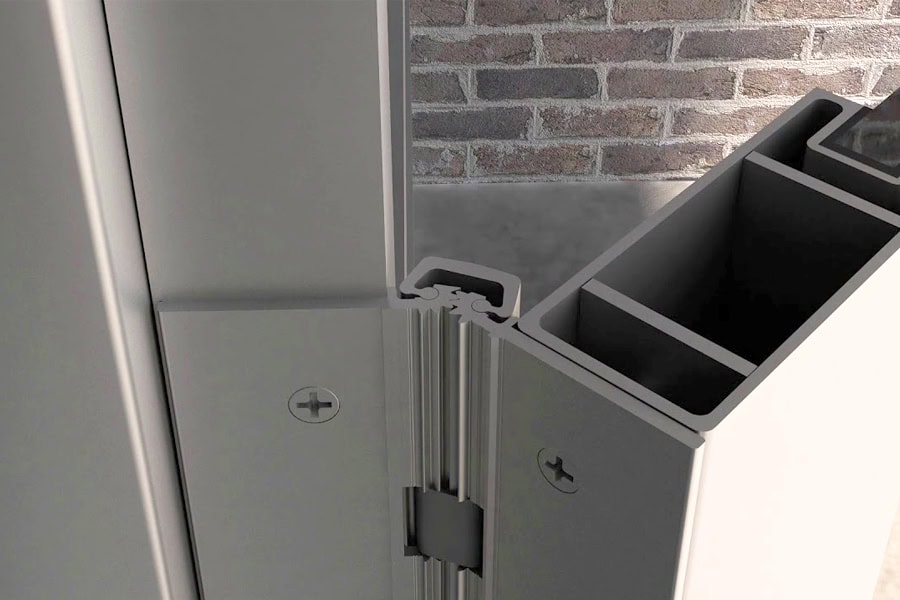
Structure Continuity Leads to Stability
Piano hinges run the entire length of the door, providing unmatched structural support. Unlike traditional hinges that support the door in only two or three spots, piano hinges offer uniform load distribution along the entire height, which minimizes bending or warping—particularly important for tall or heavy industrial doors.
Piano hinges improve door stability because they eliminate hinge-point gaps, offering continuous alignment and support throughout the entire door movement. This is especially useful in settings like electrical enclosures and industrial cabinets where misalignment can disrupt sealing or safety.
This design ensures consistent torque distribution, reducing the risk of door sag over time. In fact, heavy duty continuous hinges based on this structure are commonly used in heavy equipment access panels, control cabinets, and more, where mechanical reliability is critical. The result is a smoother swing, enhanced security, and extended service life.
High Load Capacity for Heavy Industrial Doors
Heavy-duty piano hinges can withstand substantial weight due to their extended bearing surface. This makes them ideal for industrial settings requiring reliable movement of large or dense door panels. Standard lengths like the 48-inch or 72-inch heavy-duty piano hinges offer reinforced strength for industrial cabinets, machine enclosures, and testing equipment. Piano hinges are stronger than traditional door hinges because they distribute the weight evenly across the full height, reducing point stress and increasing total load capacity.
When selecting hinges for demanding environments—like test chambers or electrical control boxes—engineers often choose piano hinges over conventional types because of their load performance and reliability. They are often paired with robust materials such as stainless steel or even integrated into heavy duty exterior door hinges for added resilience against weather and wear.
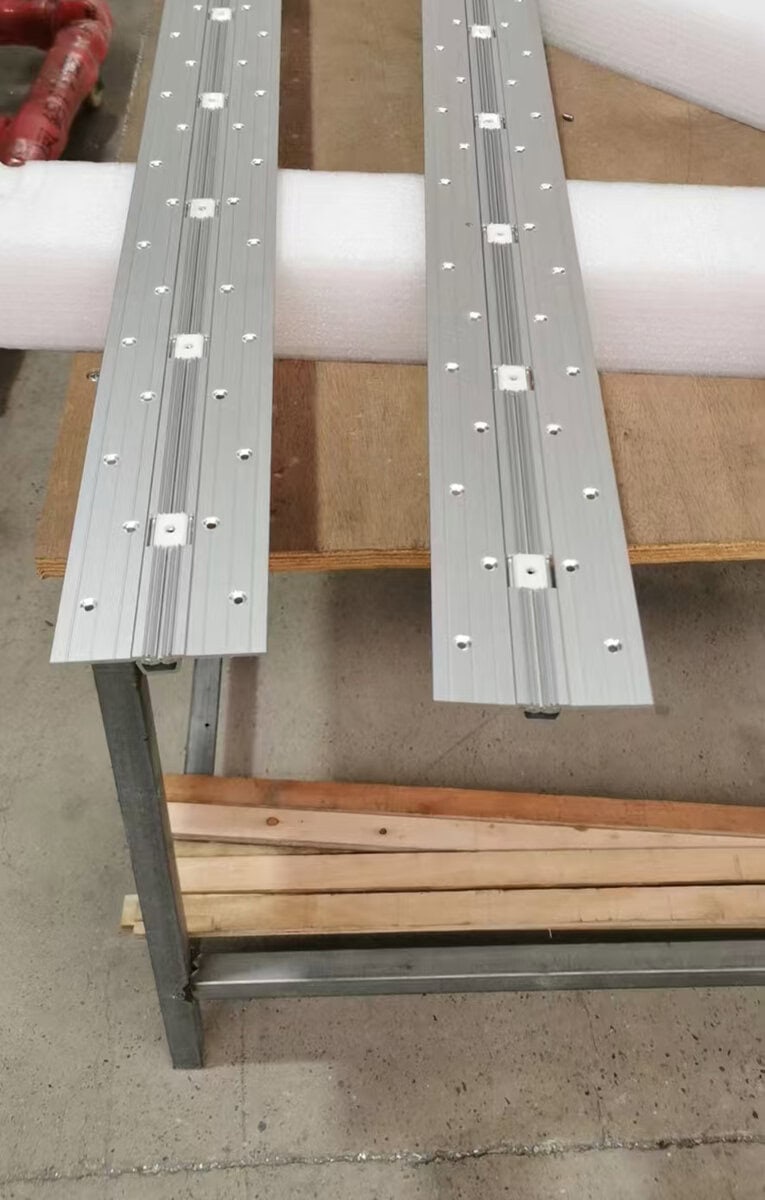
Reduces Door Shifting and Vibration
Doors in industrial facilities often undergo repetitive use, which causes traditional hinges to loosen and the doors to sag or misalign. Piano hinges, with their continuous contact, create a firm axis that resists lateral movement and eliminates wobble during operation. Piano hinges reduce door movement and misalignment by offering full-height contact, which stabilizes the door and absorbs vibrations better than segmented hinges.
This makes them ideal in environments where machinery vibrations or frequent opening/closing cycles can cause long-term wear. For example, in testing chambers, stability is critical for maintaining internal environmental conditions. Here, paired with adjustable friction hinges, the piano hinge can control resistance levels to prevent slamming or unintended opening.
Enhances Sealing and Safety for Precision Equipment
In environments requiring controlled temperatures or airtight compartments—such as climate test chambers or electronic enclosures—ensuring a consistent seal is crucial. A piano hinge helps keep the door aligned tightly with the frame, enhancing the sealing effect of gaskets or magnetic strips.
Piano hinges improve door sealing and safety by keeping the entire door edge uniformly aligned, which prevents leaks and enhances locking mechanisms. For applications like marine or lab environments, combining a piano hinge with 316 stainless marine friction hinges can further ensure corrosion resistance and hold door positions securely under variable forces. The continuous support also aids in protecting sensitive equipment from dust, moisture, and unauthorized access.
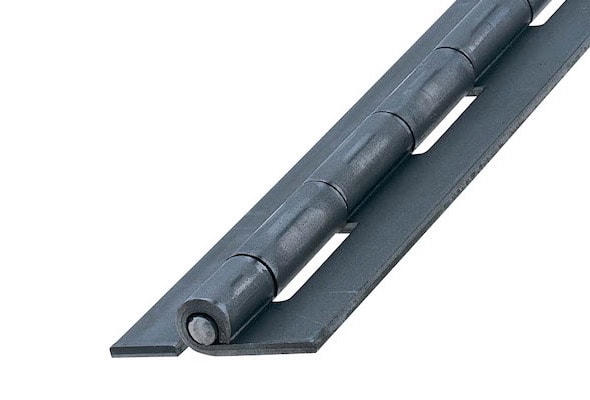
Custom Lengths and Materials for Complex Industrial Needs
Industrial piano hinges come in varied lengths—3″, 48″, or even 72″—and are available in different materials to suit the operational environment. Stainless steel models resist corrosion, while aluminum hinges reduce weight without compromising strength. For extreme environments, electro-galvanized and hot-dipped hinges offer added durability. Piano hinges are highly customizable in length, thickness, and material, making them adaptable to diverse industrial applications and environmental conditions.
This flexibility makes piano hinges ideal for manufacturers building complex machinery or test equipment with non-standard door dimensions. Some models are even paired with heavy-duty functions like Replace Industrial Door Hinges compatibility or integration with electrical panel hinges for streamlined access control in high-volume facilities.
Conclusion
Piano hinges ensure superior stability and durability for industrial doors by offering full-length, evenly distributed support, especially suited for heavy-duty, high-frequency applications.

